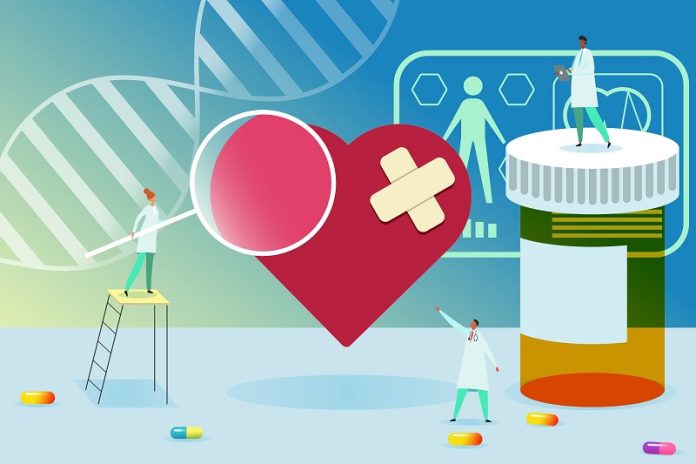
While heart disease is often associated with older age, it doesn’t exclusively affect the elderly.
A growing body of research shows that young adults are also at risk, and the early signs can be subtle but serious.
Recognizing these symptoms early can be crucial for timely treatment and prevention of more severe complications.
Heart disease encompasses a range of conditions affecting the heart’s structure and functions, including coronary artery disease, congenital heart defects, and heart rhythm disorders.
For young adults, the early signs of heart disease can sometimes be dismissed or overlooked due to their age, leading to a delay in diagnosis and treatment.
One of the most common symptoms of heart disease in young adults is chest pain or discomfort, often described as a squeezing, pressure, heaviness, or pain in the chest. This can be triggered by physical activity or emotional stress and may go away after resting.
However, it’s a mistake to ignore any form of chest pain, assuming it’s just due to non-cardiac causes like indigestion or anxiety.
Fatigue is another significant symptom that is often overlooked. Young adults with heart disease may feel unusually tired, despite having enough rest. This fatigue can be profound and may interfere with their ability to engage in usual activities.
The heart struggles to pump blood efficiently when affected by disease, which can lead to less oxygen reaching the tissues, causing tiredness.
Shortness of breath is another key indicator. This might occur not only during physical activity but also while at rest or lying down. It can feel like you’re unable to catch your breath, or you may feel winded with minimal activity, which is unusual for your fitness level.
This symptom arises because fluid backs up in the lungs when the heart is not pumping effectively.
Palpitations, characterized by irregular heartbeats or a feeling of a rapid, fluttering heartbeat, can also signify heart issues. Young adults might notice heart palpitations particularly during activities when the heart is expected to pump harder.
Other less recognized symptoms include syncope (fainting) or near-fainting spells, which may indicate a heart rhythm disorder or other cardiac issues. Swelling in the legs, ankles, or feet can also occur if the heart is not pumping blood effectively, causing fluid to accumulate in these areas.
Young women may experience somewhat different and subtler symptoms compared to men. For instance, they might report abdominal pain, dizziness, nausea, or extreme fatigue, which can easily be misattributed to less serious health issues.
Furthermore, the risk factors contributing to heart disease in young adults include both genetic and lifestyle elements.
Family history of heart disease, high blood pressure, high cholesterol, diabetes, obesity, smoking, and a sedentary lifestyle can all increase the risk. Psychological stress and poor diet also play significant roles.
Awareness and education about these symptoms and risk factors are crucial, particularly among young adults who might not consider themselves at risk for heart disease.
Regular check-ups that include blood pressure and cholesterol screenings, as well as discussions about family health history and lifestyle habits, are essential.
In conclusion, heart disease in young adults is more common than many might think, and recognizing the symptoms early is key to managing health outcomes.
Young adults, especially those with risk factors, should be vigilant about their heart health and seek medical advice if they experience symptoms like chest pain, fatigue, shortness of breath, or palpitations.
Taking these symptoms seriously and getting evaluated by a healthcare provider can lead to earlier detection and better management of heart disease, ultimately improving quality of life and reducing the risk of complications.
If you care about heart disease, please read studies that herbal supplements could harm your heart rhythm, and how eating eggs can help reduce heart disease risk.
For more information about heart health, please see recent studies that apple juice could benefit your heart health, and results showing yogurt may help lower the death risks in heart disease.
Copyright © 2024 Knowridge Science Report. All rights reserved.



